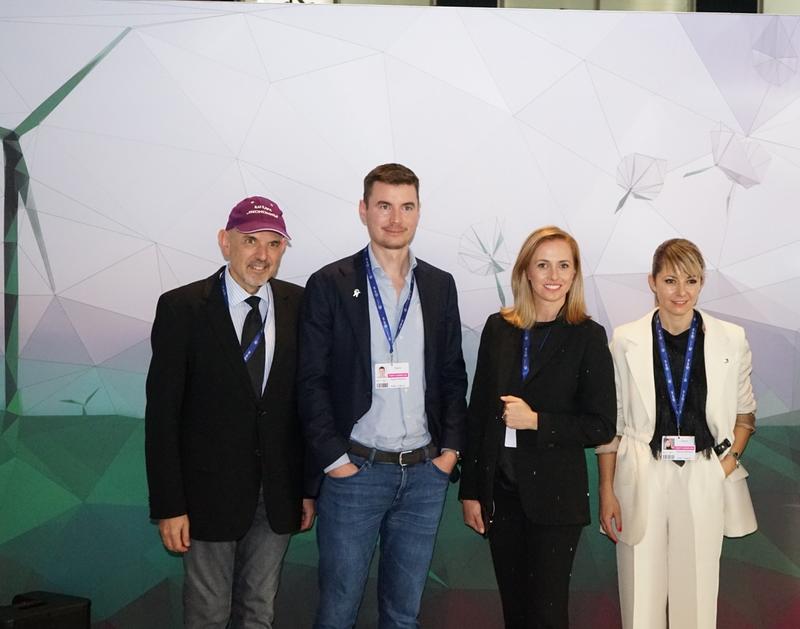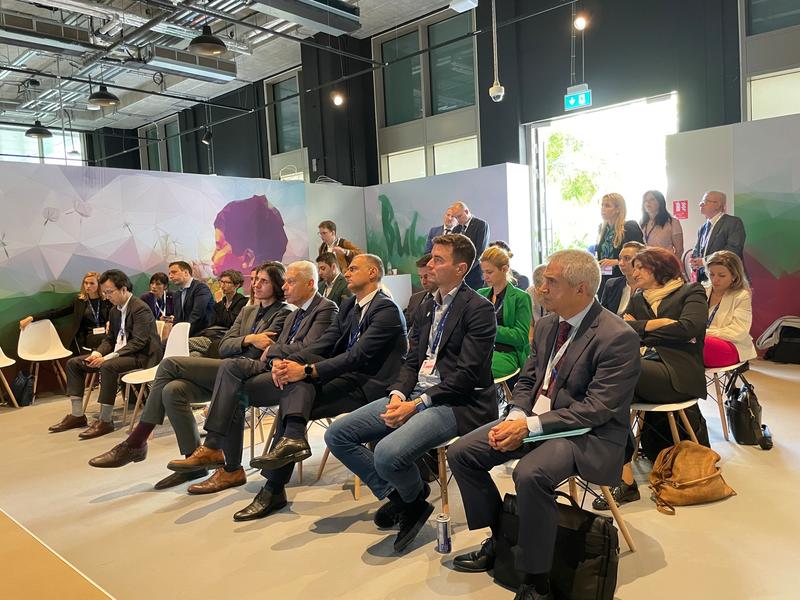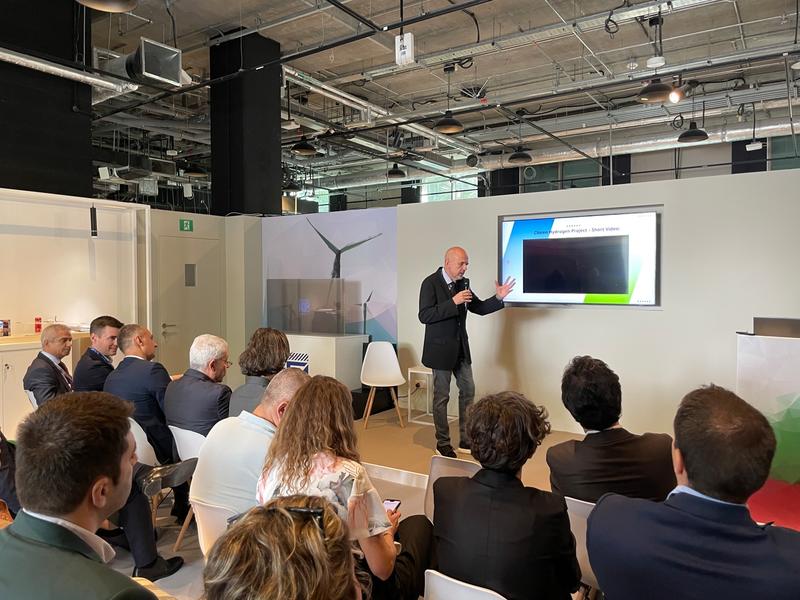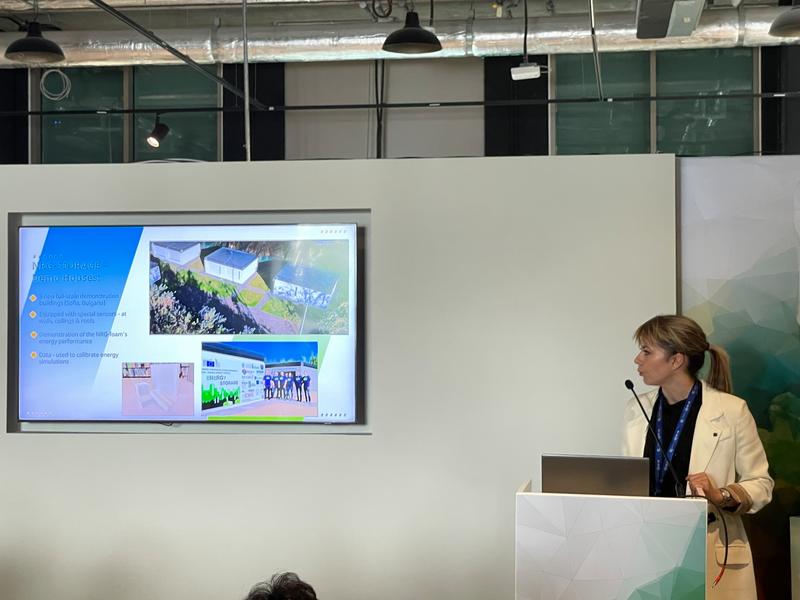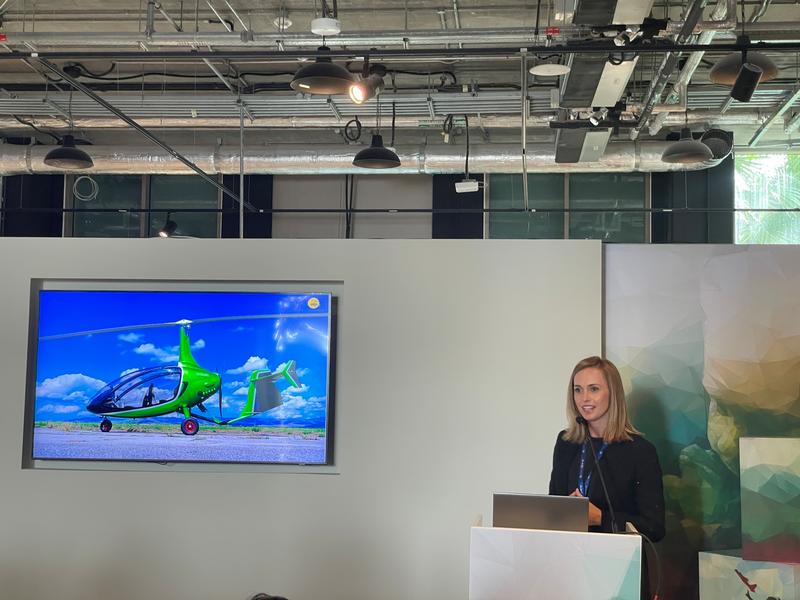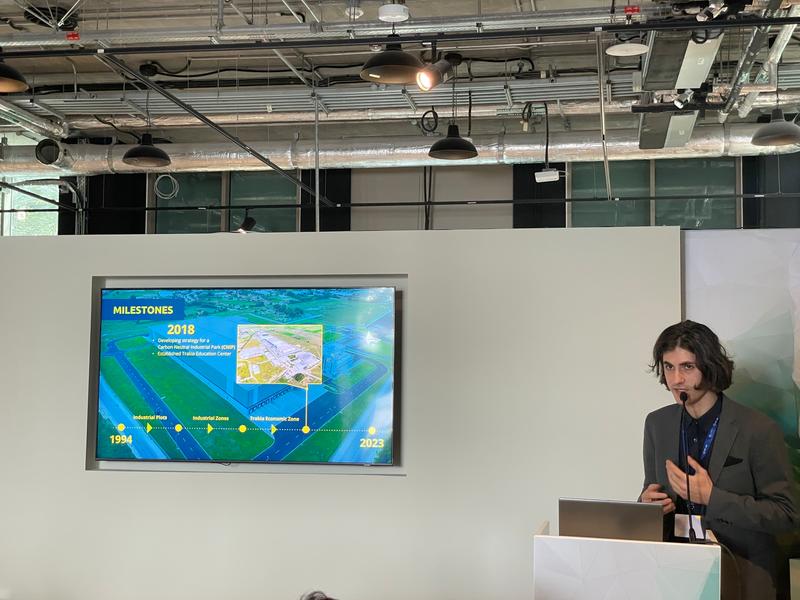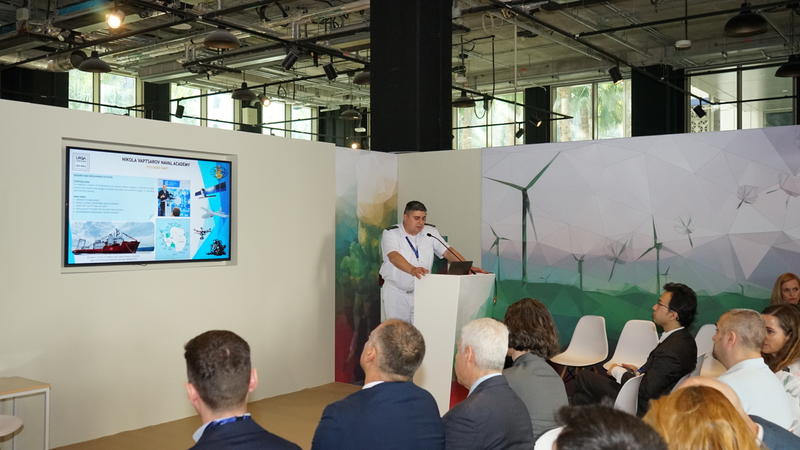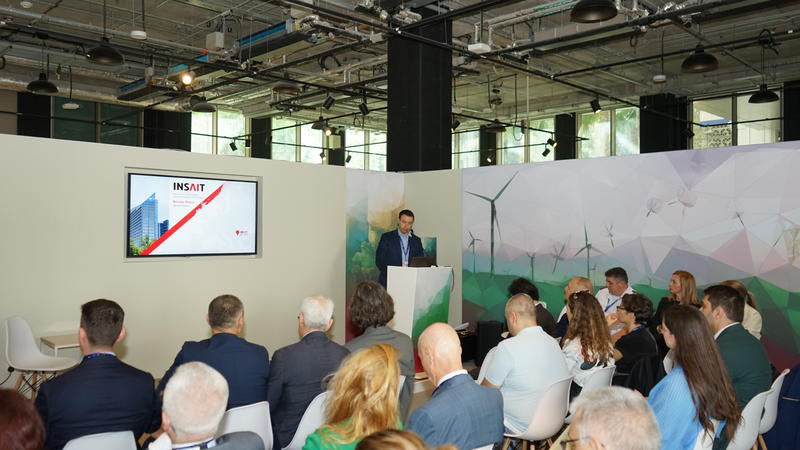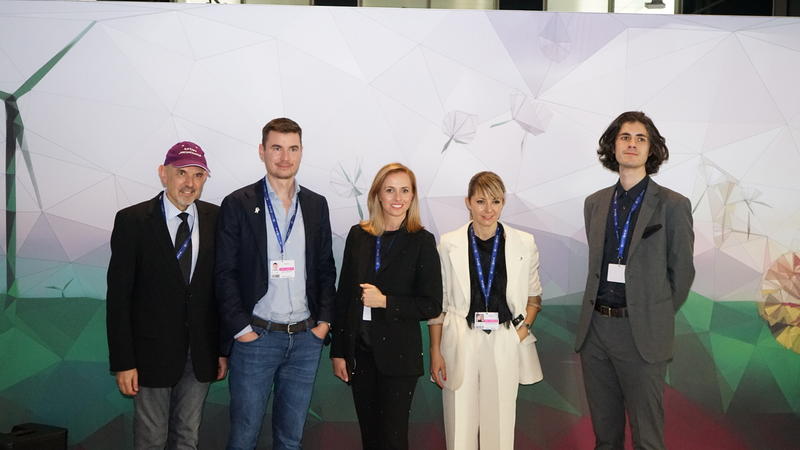The events at the Bulgarian pavilion at COP 28 in Dubai started
03 Dec, 2023 | 14:37Bulgaria demonstrated not only its strong commitment to climate goals and policies, but also the capacity and potential of Bulgarian entrepreneurship, research, and education centres to contribute with innovative solutions and transformative leadership relevant at the regional, European and global levels.
The representatives of institutions, the business and the scientific sector in the delegation include INSAIT, EnduroSat, the Naval Academy, the Thrace Economic Zone, “Niki Rotor Aviation” Ltd, Glavbolgarstroy.
INSAIT (Institute for Computer Science, Artificial Intelligence, and Technology), represented by Konstantin Makedonsky and Borislav Petrov, was launched last year. INSAIT's cause is to establish Bulgaria as a global destination for research and innovation, becoming a magnet for top talent, as well as to create conditions for the development of an economy based on high value-added products and intellectual property.
INSAIT is part of the structure of Sofia University "St. Kliment Ohridski". It was established in partnership with two of the world's leading universities - the Federal Institute of Technology in Zurich (ETH Zurich) and the Polytechnic University of Lausanne (EPFL). The Institute is led by world-renowned Bulgarian and foreign scientists from top universities in the USA, Switzerland and Israel.
EnduroSat, represented by Raycho Raychev, is one of the fastest growing companies in nanosatellite technology and services, with engineering and manufacturing infrastructure based in Sofia. EnduroSat is one of the successful start-up companies in Bulgaria, which specializes in the development and construction of microsatellites with modular structures for various purposes. The company's Bulgarian nanosatellite flew to the Earth’s orbit on board the first orbital flight for 2023 of Elon Musk's SpaceX company. The Falcon 9 rocket was launched as part of the Transporter-6 mission supported by a large number of customers. SpaceX's mission is placing 114 satellites from 24 countries into orbit. Nanosatellite technologies can be used to monitor and track climate-related data from space - water levels, deforestation, illegal logging, etc.
The Varna Naval University, represented by prof. Prof. Miroslav Tsvetkov - presented their work and technological capabilities for monitoring accidents and developments in the Black Sea. The main emphasis was placed on satellite observations, whereby the data is used for decision-making in situations, such as the demolition of the Ukrainian Nova Kakhovka dam, spills in the Black Sea related to various ship incidents, etc. Prof. Tsvetkov will participate in other events at the Bulgarian Pavilion dedicated to the Black Sea and Antarctica. The research vessel "St. St. Cyrilius and Methodius" marks this year the 32nd expedition and the 2nd own-vessel expedition with 24 cadets from the Naval Academy on board. The Antarctic expeditions are dedicated to scientific research, much of which is related to climate change.
The Thrace Economic Zone near Plovdiv, represented by Plamen Panchev and Martin Panchev, is the first carbon neutral industrial zone in Europe. Since the launch in 1996 of the first Maritza industrial zone, more than 180 investors have been attracted, half of them foreign, more than 35,000 jobs have been created and investment has exceeded 3 billion EUR. According to preliminary forecasts, investments of over 1 100 000 000 EUR are expected in the Thrace Economic Zone within 10 years, which will create 30 000 new jobs.
"Niki Rotor Aviation" Ltd, represented by Miglena Nikolova, is the first airline for autogyros, which during the Bulgarian participation at COP28 presented results related to the product life cycle analysis. This includes extensive tracking of the production of all major components and materials, the assembly of the airship itself in terms of energy and resources, its use, logistics to customers and its end of life. The autogyro is an environmentally friendly aircraft that facilitates and improves the operation in various industries, main applications can be in imaging and surveying large scale areas; anti-terrorist and rescue operations; cadastral schemes; aerial control of road infrastructure; border surveillance; agricultural activities and many more. The autogyro has a fuel consumption of 15 l/h, can maintain a flight duration of over 4 hours and offers a wide range of speeds. It is safe, energy efficient, and affordable. Based on the analysis, the autogyro confirms the theory that it is an environmentally sustainable product and based on this the company has a clear strategy for emissions reduction and environmental protection.
"Glavbolgarstroy", represented by Plamena Nenkova, presented some of its international innovative and sustainable projects that the company develops in the construction sector in partnership with leading Western European universities, global manufacturers of technological equipment, European sector associations, public authorities, etc. The projects are in three main areas: circular economy in construction, energy efficiency and green energy production and consumption.
"MOBICCON-PRO" is a concept funded under the EU's largest research programme "Horizon Europe", covering the construction of a pilot mobile facility for the production of high-end recycled building products and materials.
"NRG-STORAGE" is a project involving the development of an innovative and extremely lightweight insulation material for non-residential buildings that aims to achieve 25% better insulation capacity, 10% higher energy storage capacity, and 10% higher water tightness and airtightness.
The company's latest project to produce and use green hydrogen for process needs at the Chiren GHG plant aims to demonstrate the synergy between renewable electricity, hydrogen, and natural gas to effectively reduce greenhouse gas emissions.
The Bulgarian Pavilion programme continues today with events related to the theme of the day: Health and Climate.
Link to today's events https://www.moew.government.bg/bg/klimat/cop28/03-dekemvri/
